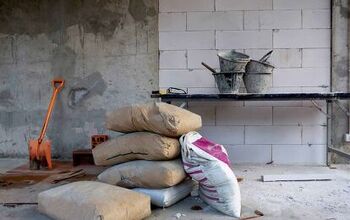What Containers To Use When Storing Compost

Making your own compost is a great way to help the environment, while also providing free nutrient-dense soil for plants. While your compost pile takes months to break down and develop into the type of compost that is ready to add to your garden, its benefits are worth the wait. If you have a lot of compost you are excited to use, but aren’t ready to use it quite yet, you will want to find the best way to store compost so you can use it later.
Store compost in a dry place in a climate-controlled area that is not too hot or cold. Store the compost in a large container like a plastic storage bin, burlap sack, compost bag, or galvanized steel bin. Make sure there is airflow and the compost does not dry out. Temperatures that are below freezing halt the decomposition process, so consider insulating your compost with hay, leaves or other materials.
If you want to make sure your pristine compost is preserved through the harsh winter, there are a few decisions you need to make. First, you need to choose what container you will use to store it. You also need to figure out the best location to keep the collected compost so it doesn’t lose all its nutrients. If you are wondering if it is even worth storing your compost, you should consider all of its benefits.
The Benefits Of Storing Your Compost In A Container
If you are on the fence as to whether or not you should store your compost or just let nature take its course, you should consider the benefits of storing it.
Creates Stable Environment For Microbes
One of the key elements of compost is all the living microbes inside it. These microbes, fungi and such all help to break down the material and turn it into more raw nutrients. When the compost freezes, however, it halts this process. This means it can take significantly longer for your compost to reach its desired consistency if you leave compost out in the winter to freeze with the elements.
Shields It From Snow And Rain
Snow and rain are also bad news for compost. They work to dilute the nutrients in your compost. In other words, leaving your compost out in the winter will make it less nutrient-rich than storing it.
Provides You With Ready-To-Use Compost When You Need It
Perhaps the best benefit of properly storing your compost is that it leaves you with ready-to-use compost once the winter thaws, or any time of year. This is a huge perk for those who like planting as soon as winter is over. It is not nearly as easy to use your compost if it is still frozen and soaked from the winter.
Best Vessels To Use For Storing Compost
When it comes to an ideal compost storage container, you need to consider a few factors. First, you need something durable that won’t decompose along with the compost. This rules out paper-based products. You also want something that can withstand the moisture and heat that compost releases.
A container that blocks light yet still has some airflow is ideal. The trick is, you want a dark space, but you also need some airflow in order for the compost to work its magic. However, too much airflow is no good, as this will dry out the compost. Below we have listed some containers that work well when storing your compost.
Large Plastic Storage Bins With Lids
Large plastic storage bins are ideal for compost. They are durable, can withstand heat, are easily transportable, and have lids that are usually not airtight. They are also reasonably cheap, and can be found nearly anywhere. You may need to punch a few extra holes in the top to ensure airflow.
Burlap Sacks And Compost Bags
Both durable burlap bags as well as compost bags are great to store compost. You can find bags specifically made for storing compost at home improvement stores and online retailers. While lightweight and easy to store, they may require additional insulation.
Plastic Bags
If you are in a pinch and need to move your compost right away, you can even use plastic trash bags. Just make sure you use heavy duty bags, since compost is heavy and wet. You will also need to poke some holes to ensure air circulation, and should consider insulating around the bags as well.
Galvanized Steel Garbage Bins
If you plan to make this an annual event, consider investing in a few galvanized steel garbage bins. Their loose lids allow a bit of airflow, they are long lasting and easy to transport. They are also tall, and can fit into a shed, without you having to worry about pests getting into it.
Five Tips On Where You Should Store Your Compost
1. Choose A Dry And Mild Temperature Location
Be sure to choose a dry and relatively climate-controlled area. Avoid areas where the compost will be directly exposed to heavy winds and severe elements. Try and use a shed, or shelter of some sort.
2. Insulate The Compost To Prevent It From Freezing
If possible, find a way to insulate your compost to help prevent the temperatures inside from dipping too low in the winter. You can use leaves, sawdust and mulch — things from your yard — to help insulate the compost.
3. On A Firm, Flat Ground Not Susceptible To Flooding
Make sure the surface where your compost rests is firm and flat. The last thing you want is to take the time to store the compost only for it to spill out and dry out over the winter. Also make sure there is no risk of flooding.
4. Keep It Moist
Make sure you check on your compost periodically through the cold winter and hot summer months. You want to make sure it is staying insulated and moist. If the compost dries out completely, it stops doing its job. But you don’t want it swimming in water either. Keep a healthy balance.
5. Not In Your Home
You might be tempted to store your compost in your basement or somewhere in your home, but avoid this. The microbes are not the only living things in the compost. There are insects and worms and all sorts of creatures you don’t want living in your house. There is also the smell to consider.
Wrapping Up How To Store Compost And What To Use
If you are interested in storing your compost, you will need the right container. Try using plastic storage bins, compost bags or even a galvanized steel garbage bin.
You want something that can help keep the compost safe from elements while preserving moisture and providing airflow. Also do your best to keep the compost insulated by choosing a protected environment or using natural materials to insulate the container.
Related Guides:

Tom Gaffey is an expert writer who currently resides in Washington D.C. Tom has a passion for real estate and home improvement writing, as well as travel and lifestyle writing. He lived the last twelve years in Hawaii where he worked closely with luxury resorts and event planners, mastering his knowledge of aesthetics and luxury products. This is where he found his passion for home improvement and a keen interest in DIY projects. Currently, Tom resides in Washington D.C, and also working on his debut fiction novel.
More by Tom Gaffey



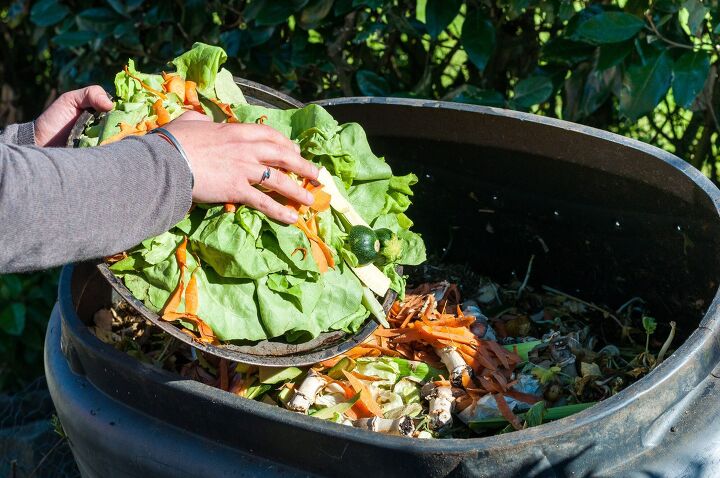






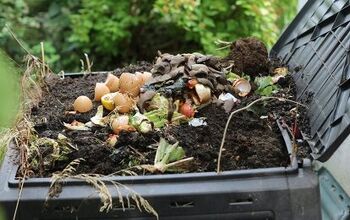
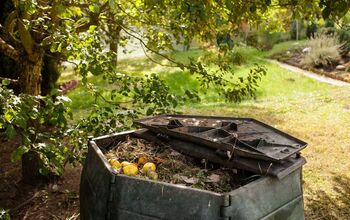

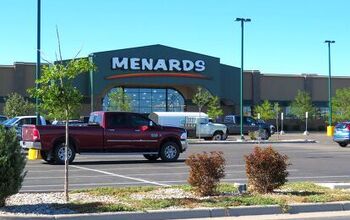
![10 Best Electric Pressure Washers – [2022 Reviews & Guide]](https://cdn-fastly.upgradedhome.com/media/2023/07/31/9070600/10-best-electric-pressure-washers-2022-reviews-guide.jpg?size=350x220)



![How To Reset A Whirlpool Cabrio Washer [In 5 Easy Steps!]](https://cdn-fastly.upgradedhome.com/media/2023/07/31/9076531/how-to-reset-a-whirlpool-cabrio-washer-in-5-easy-steps.jpg?size=350x220)
